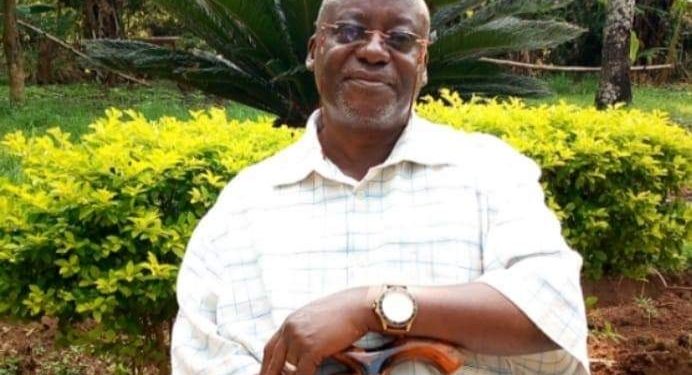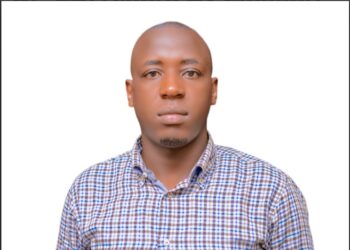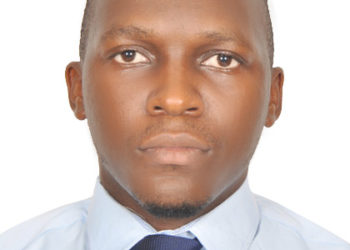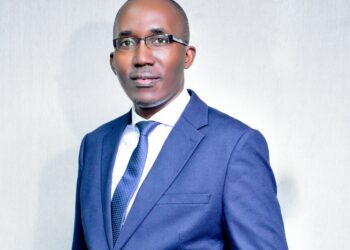Should I start with defining organization? Let me start differently and will define the concept at a later stage. Organization is one of the most spoken about concepts in every human society, but also one of the most ignored and most abused by humanity for greedy and selfish intensions.
Now let me define organization by first explaining the short phrase “To organize”. Vocabulary.com defines organize as [to] arrange by systematic planning and united effort; devise, get up, machinate, organize, prepare; cause to be structured or ordered… Oxford Advanced Learners Dictionary defines organization as “an organized group of people with a particular purpose, such as a business or a government department”.
Because politicians and politico-militarists in power are more interested in the narrow interests and gains in pursuing and retaining power, wealth, glory and domination of others at all costs, organization (whether natural or man-made) are frequently violated. This is particularly the case in post-colonial Africa, where institutions are built and collapsed if the individual goals of institutions and those of the people of power clash.
Many organizations in Africa have suffered decay and collapse because of the increasingly frequent clashes between their goals and the goals of the men of power. It is not rare for an incoming regime of power to destroy every organization and institution in order to start from scratch, ostensibly to build its own legacy. This is precisely what happened in Uganda when the National Resistance Movement captured the instruments of power through the barrel of the gun in 1986.
During the period 1986-2023, virtually all the secondary schools and technical schools left behind by the previous regimes of power of Idi Amin and Apollo Milton Obote were collapsed. So were cooperative Unions and cooperative societies, Uganda Railways, Bus Companies (Peoples Transport and Uganda Transport Company, Jinja Industries, and Uganda Commercial Bank, to name but a few). The group, which popularized the erroneous view that it had liberated Uganda and Ugandans, and spent billions to commemorate the day it took power, went on to ensure that cooperative societies and cooperative societies were replaced by Saccos; Uganda Railway became a shadow of its former self, Uganda Commercial Bank was replaced by a foreign bank, Stanbic, and Jinja industries were moved to Namanve and Mbarara. This was part of what President Tibuhaburwa Museveni said was “a fundamental change, not a mere change of guards”.
Further fundamental changes have taken place in land dynamics, education, health, transport, agriculture, employment, politics, and even in the spiritual realm to favour individuals and institutions of a small ethnic group with exogenous roots now constitutionally recognized as one of the indigenous groups of Uganda.
Virtually all surviving organizations and institutions are firmly in the hands of the small ethnic group. These include the instruments of coercion (army, police, prisons, paramilitary groups, security firms, petrol station, supermarkets, et cetera. Even increasingly, Parliament and the Judiciary are being captured to reflect the new fundamental change of organizational and institutional occupation by the small ethnic group.
The National budget too is firmly captured and its implementation will favour the group in power. For example, if increasingly government is allocating money to burials of fallen functionaries the majority of whom will from now on be ethnically oriented in pursuit of social responsibility towards its elements.
We scientists know and speak about organization in natural (biological, physical and chemical) systems. We also know that all organizations, for their integrity and sustenance depend on cycling of materials, flow of energy and communication. If there is disharmony or disequilibrium in cycling of materials, flow of energy and communication, then disorganization results.
There is no doubt that in Uganda that organization of government is fast getting disorganized for power and control. We see for example, the electricity sector, which was one run efficiently and effectively by one organization – the Uganda Electricity Board (UEB) is split into almost 6 different small firms, equally armed with highly paid officials and well-endowed boards, but the collective efficiency and effectiveness of the firms is not anywhere near what the UEB achieved.
Those who love statistics will demand that I produce statistics to support this view, but statistics do not speak. It is people who speak and are experiencing the inefficiency and ineffectiveness of the firms. Their voice is loud and clear. They have been greatly let down while the consumption of the officials has skyrocketed.
Meanwhile, Uganda’s reliance on loans is also skyrocketing. Production continues to plummet as our rulers continues to disorganize what used to be organized, not so much to reorganize better, but to make things worse in favour of power, glory, wealth and domination. There is no evidence to show that as government borrows more and more the borrowed money that comes in is being invested wisely to improve the living environment and prosperity of all Ugandans.
The economic schemes of government such as Myooga, Operation Wealth Creation (OWC) and Parish Development Model (PDM) driven by money bonanzas and based on the falsehood that wealth will trickle down to entire communities from a few select individuals in those communities, are only proliferating and entrenching poverty. The beneficiaries of the schemes are tending to be the government functionaries who handle the money and decide who to give it to. In a way, therefore, the said schemes are tools of disorganization, especially of communities, which were once integrated and shared resources and opportunities more fairly.
As if all this is not enough, communities are becoming further disorganized by being thrown into Bantustan-like enclaves, which in Uganda are called districts, and resources are simply being consumed in maintaining the districts or the connection between the districts and the Centre.
This deliberate disorganization of Uganda, its organizations and institutions is not freeing the country and its people from the cancer of loans-dependent development, but is entrenching the dependency syndrome and destroying the production capacity of people and country.
The question is: How long will Uganda go on with the falsehood that the more government borrows domestically and globally the more the country will develop and its people will have their circumstances changed for the future? How are we sure that even if lenders gain immensely from advancing loans to Uganda they will, in future, continue to do so with accelerating zeal?
There is need for serious rethinking of unending dependency syndrome, which sustaining the falsehood among our rulers that loans are developing Uganda. Perhaps they know the loans are not developing Uganda, but are benefitting some or all of them; and that is why they continue to hook the country to loans.
As one thinker put it we can no longer continue to blame colonialists for our debacle. Neither can we continue to do things the same way and expect different results. We must rethink the way we are organizing so that we organize to reorganize to free our country from loans. As I have said before, loans are a means of robbery of the rich from the poor and needy. It is possible to live without loans if after borrowing the borrowed money is invested wisely in education, agriculture, health and other spheres of human activity, not only for a few people of close kinship to benefit.
That will not lead to development, transformation and progress of country and people. It will only lead to segregation, hatred, despondency, discontent and chaos, which will wipe out whatever little development, transformation and progress that will have been made by the few.
There are many examples of country that depended on loans to transform their economies after they were disorganized.
They used the loans wisely and transformed their economies for the benefit of all. Germany, China, Japan and Singapore were such countries. They are now countries of difference and are extending loans to other countries to strike a difference in those countries. Those which will rethink their priorities, like Tanzania has done, will indeed make a positive difference in their development trajectile. Uganda has no choice but to do the same. However, priorities may not change until leadership changes. Development is an attitude of mind. The attitude of mind of current leaders is not development as such but power retention for power’s sake.
Power for power’s sake ultimately disorganizes. Money will be borrowed and diverted away from social development to arms race to prepare to confront a perceived enemy. In Uganda, unfortunately, the perceived enemy is increasingly “the citizens of Uganda. Guns are more pointed towards Ugandans than towards the borders with neighboring countries. It is a wasteful venture because however much guns are pointed at the people, they never extinguish the collective discontent of people, which resides in the heads of those at whom the guns are pointed. Sooner than later the centre will not hold.
This means there is need to rethink the security enterprise away from just physical security for a few in power to the totality of security, which includes climate, ecosystem, ecological, environmental, political, social, cultural, mental, psychological, economic, intellectual, academic, labour, indigene, food, cultural, spiritual, ethical, moral and infrastructural security. If money is borrowed and invested in the totality of security rather than just physical security, then meaningful and effective development, transformation and progress will begin to take place. Securing everyone’s future and future of security will be possible and not just a slogan.
Deliberate Disorganization for just physical security (militarization) will keep Uganda hooked to loans domestically and globally for the wrong reason. It will divert most of the money away from development, transformation and progress. It will undermine “securing your future” and security of future.
For God and My Country.
Do you have a story in your community or an opinion to share with us: Email us at editorial@watchdoguganda.com













